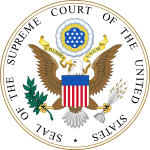 Today, the United States Supreme Court will hear arguments about the Constitutional rights of homosexual couples courtesy of the Internal Revenue Code.
Today, the United States Supreme Court will hear arguments about the Constitutional rights of homosexual couples courtesy of the Internal Revenue Code.
The Court may rule on a variety of grounds in United States v. Windsor including standing (was the couple’s marriage recognized under New York law) and the proper Constitutional standard (does Intermediate Scrutiny apply to homosexuals) but the case started with a tax return.
Edie Windsor and Thea Spyer were New York residents and a couple for over 40 years. In 2007, they were married in Canada where same-sex marriage was legal. Upon Thea’s death, Edie filed a federal estate tax return, Form 706. Thea’s estate paid $363,053 in federal estate taxes because she was not eligible for the unlimited marital deduction under IRC §2056(a) – a benefit routinely applied to married couples of different sexes. Edie filed a claim for refund of the estate taxes paid. When that claim for refund was denied she filed suit in federal district court.
The refund denial was reversed by the U.S. District Court for the Southern District of New York and the Second Circuit Court of Appeals. Read opinions published in those cases here and here.
Whether not the Supreme Court issues a sweeping or narrow opinion on the rights of homosexuals, there is little question that the tax code touches everyone. After all, that’s where this case started.


Pingback: Accounting News Roundup: TurboTax's Fight Against Simple Filing ... - Taxes-Info.com
Pingback: Tax Roundup, 3/28/2013: Appeals Court upholds injunction against IRS preparer regs. Also: Indicted for overstating income? « Roth & Company, P.C